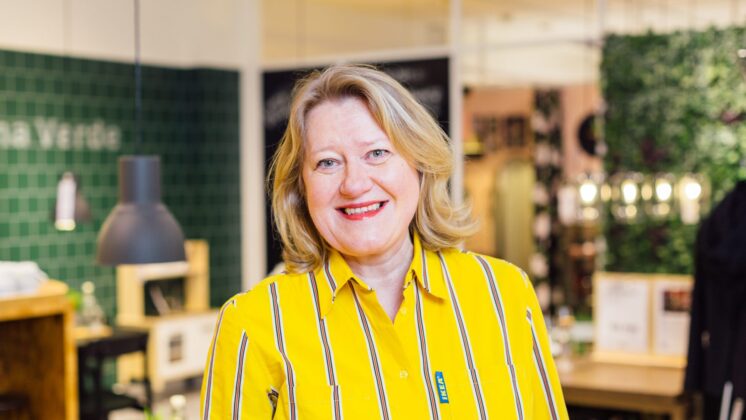When a company goes global, it has to make tough choices about how much of its culture to import into a new market. A company might operate like a well-oiled machine at HQ, but the same performance is by no means guaranteed overseas. There are cultures and customs to consider, adaptations to be made.
The American leadership style often doesn’t mesh well with cultures that value indirect communication.
The precision of German scheduling is rendered virtually meaningless in cultures with a different sense of time.
The meeting style of Arab countries is often misinterpreted, causing confusion and even resentment in cross-cultural situations.
But sometimes importing elements of a company’s culture can come with great reward—not only for the company or local staff, but for society.
Ikea’s gender inclusivity initiatives are a prime example of how a decision not to compromise on a core mission can create lasting impact. IKEA Japan CEO and CSO (Chief Sustainability Officer) Helene von Reis—a female foreign leader in a male-dominated, homogenous society—spearheaded this initiative. Her efforts have led IKEA Japan to 50/50 gender equality at the managerial level, earning her the Forbes Japan Women award in 2017. She recently shared some insights into how Ikea as a role model may be impacting Japan for the better.
How much of IKEA Japan’s gender inclusivity process is about empowering women, and how much of it is about redefining benefits for men?
The process starts with identifying and agreeing on the fact that equality is a human right. In Japan, women have as high an education level as men, and we know that women leaders support Japan in economic growth. We also know that companies with diverse leadership deliver better financial results.
After agreeing on the purpose and objective, we needed to set goals and measurements. What matters gets measured. Managers need to set meaningful KPIs. At Ikea, we have decided 50/50 male/female managers is a global KPI for every country to be measured on.
To attract female leadership talent, it is most important to listen to their needs and be flexible in approach. For example, it must be possible to be both a mother and a manager. To make this happen, we needed to identify core needs such as day care and the possibility to work from home. Mothers need to be able to support their children at school and take time off when needed. Flexibility is the key. We are also running a women’s mentorship program to create dialogue and boost confidence.
For fathers, Japan has a very generous paternity leave system. But it is not used. We encourage fathers to take time off by asking the ones who do to share their unique experience. This makes them role models for others who hesitate.
What is your advice for navigating cultural differences?
Being foreign means that there are many cultural dimensions you have to learn. Japanese communication behavior is quite different from any other culture I have experienced. Many manners here are built on male context. But with curiosity and willingness to accept that you are new, you can overcome most difficulties. We are all humans, regardless of gender. I try to think about that when I find myself a little lost as the only woman in the room.
My Swedish background, I think, has helped me to some degree to dismantle the business context. Both Swedish and Japanese culture are quite consensus oriented and built on trust.
You also have to understand where a country is in its efforts to change. Japan is on a journey to recognize women in the workforce—especially as leaders and key stakeholders. It is all about action now. Does Japan want women to take more space as leaders? If so, some key societal changes are needed: more day care facilities, more flexibility in working hours, and a different taxation system for families with both parents working.
What advice do you have for women who want to exact bottom-up change?
I always say there are a few key things to make sure are in place:
- Choose a company that has a clear ambition and direction towards equality.
- Make sure your partner understands your wish to have a career.
- Be clear with your manager about your needs.
The current corona crisis has somewhat paved the way for new styles of working and living. Managers should be especially keen to listen to these new needs and use this as a starting point for many more women to take leadership positions.
How have things changed during COVID-19?
We were blessed to be able to stay open and support the many people spending more time at home. Our online sales have actually doubled during this time, so we had to be agile and adjust to meet customer needs. While doing this, we also had to make sure our coworkers and customers feel safe visiting our stores.
As a company with a clear mission, it is also extremely important to us to support society. We have given away more than 25,000 products to hospitals, families in need, and food banks in Japan. And there’s more to come as the need continues for the most vulnerable, such as single mothers.
Moving forward, the focus on telework is an opportunity for women and men to be more active partners at home. It’s a chance for everyone to have better work-life balance. I really hope this movement continues to develop. We do not need to sit long hours in a tight office to do good, efficient work.
I believe the corona crisis has brought more attention to what really matters in life: caring for each other and the planet.



